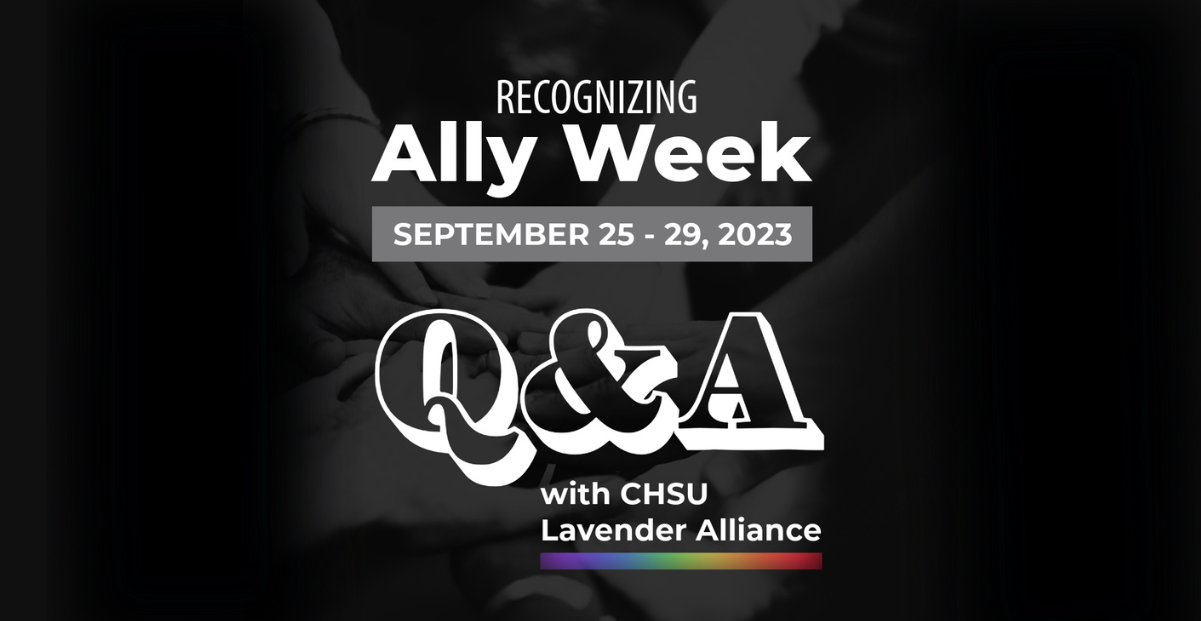Medical Students Provide Advice on Being Good Allies in Healthcare for Ally Week
September 28, 2023

To recognize Ally Week on September 25-29, California Health Sciences University (CHSU) medical students in the Lavender Alliance student organization provide advice on how to be good allies in healthcare.
As a future physician, what does being an ally mean?
- “Allyship is not an identity—it is a lifelong process of building relationships based on trust.” – Sara Jhanjar, second-year medical student
- “It means having awareness of your own implicit biases to provide your patients with holistic care.” – Martin Garcia, second-year medical student
- “An Ally means being a support system for all beliefs, sexual orientations, races, religions, etc.” – Ian Miguel Raguine, second-year medical student
- “Not being silent when you hear colleagues making microaggressions or making their patients purposefully uncomfortable. Being an ally means not allowing your colleagues to misgender their Trans/NB colleagues or patients. Introduce yourself with pronouns!” – Cori DeLisi, third-year medical student
What are some common misconceptions about LGBTQIA+ patients?
- “That being LGBTQIA+ does not have an affect on health.” – Sara Jhanjar, second-year medical student
- “Misconceptions about LGBTQIA+ patients is that they over exaggerate their concerns.” – Curtis Ngo, second-year medical student
- “That they have to have HIV, HEPB, or have a drug problem.” – Krishan Joshi, second-year medical student
What are some common challenges faced by LGBTQIA+ patients, and how can allies/healthcare
providers help address these challenges?
- “Lack of understanding and pre-judgements. Listen to your patients!” – Jennifer Tasarz, second-year medical student
- “They face judgment and may not want to seek healthcare.” – Ian Miguel Raguine, second-year medical student
- “Call out misconceptions and stereotypes in colleagues, create a safe patient environment and use
- pronouns.” – Sara Jhanjar, second-year medical student
- “Not wanting to share certain information/details out of fear of discrimination or bad medical care.” – Brian Tran, second-year medical student
How can healthcare providers support transgender and non-binary individuals in their everyday
lives?
- “Continued education and proactive involvement in LGBTQIA+ community events” – Martin Garcia, second-year medical student
- “Healthcare providers can advocate for transgender and non-binary individuals at their clinics.” – Curtis Ngo, second-year medical student
- “Speak up when you hear people saying derogatory things or misgendering these folx. Speak out against recent legislature limiting access to care, VOTE for people who will protect trans/NB folx. Educate yourselves about what trans and NB people are.” – Cori DeLisi, third-year medical student